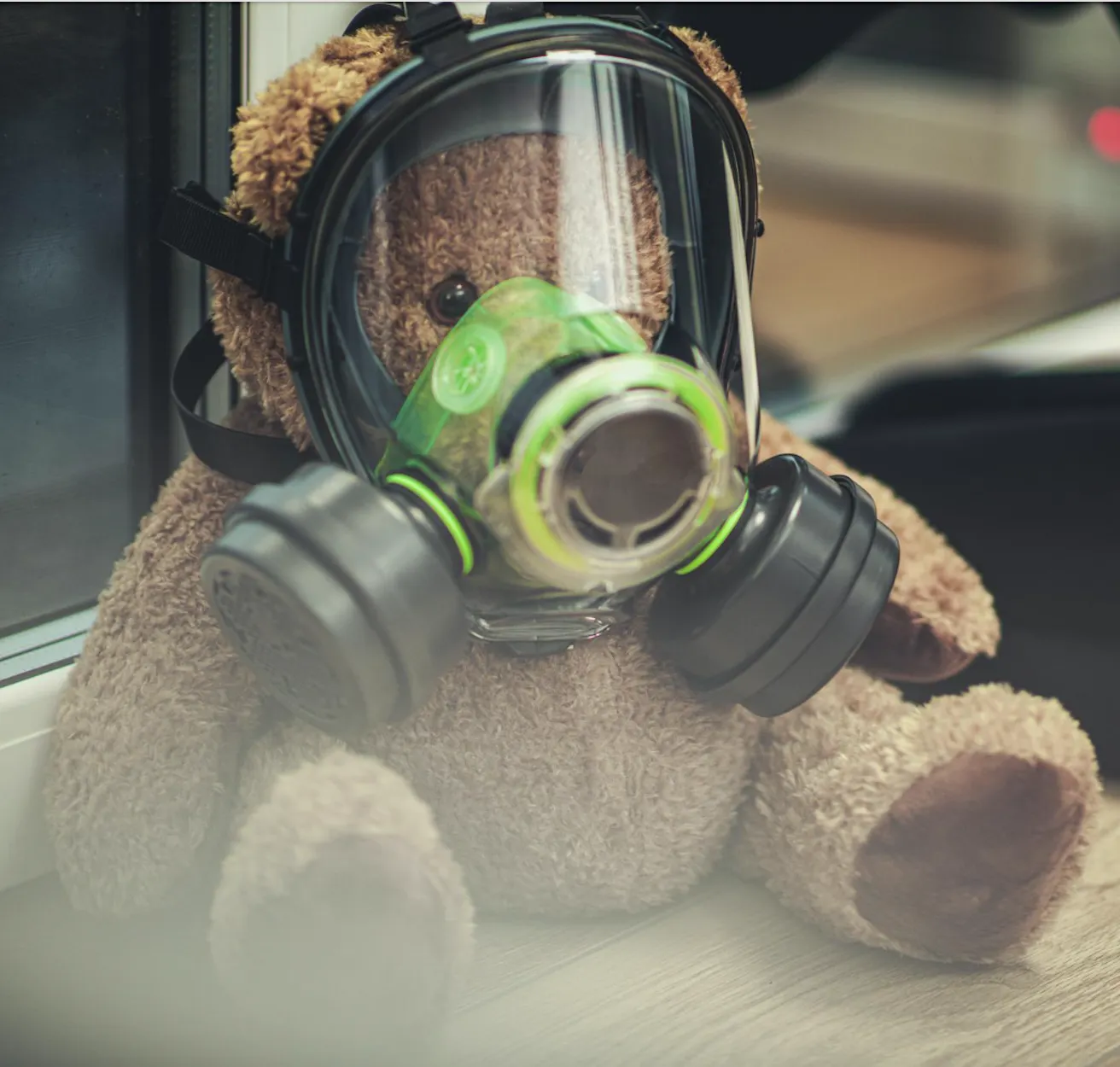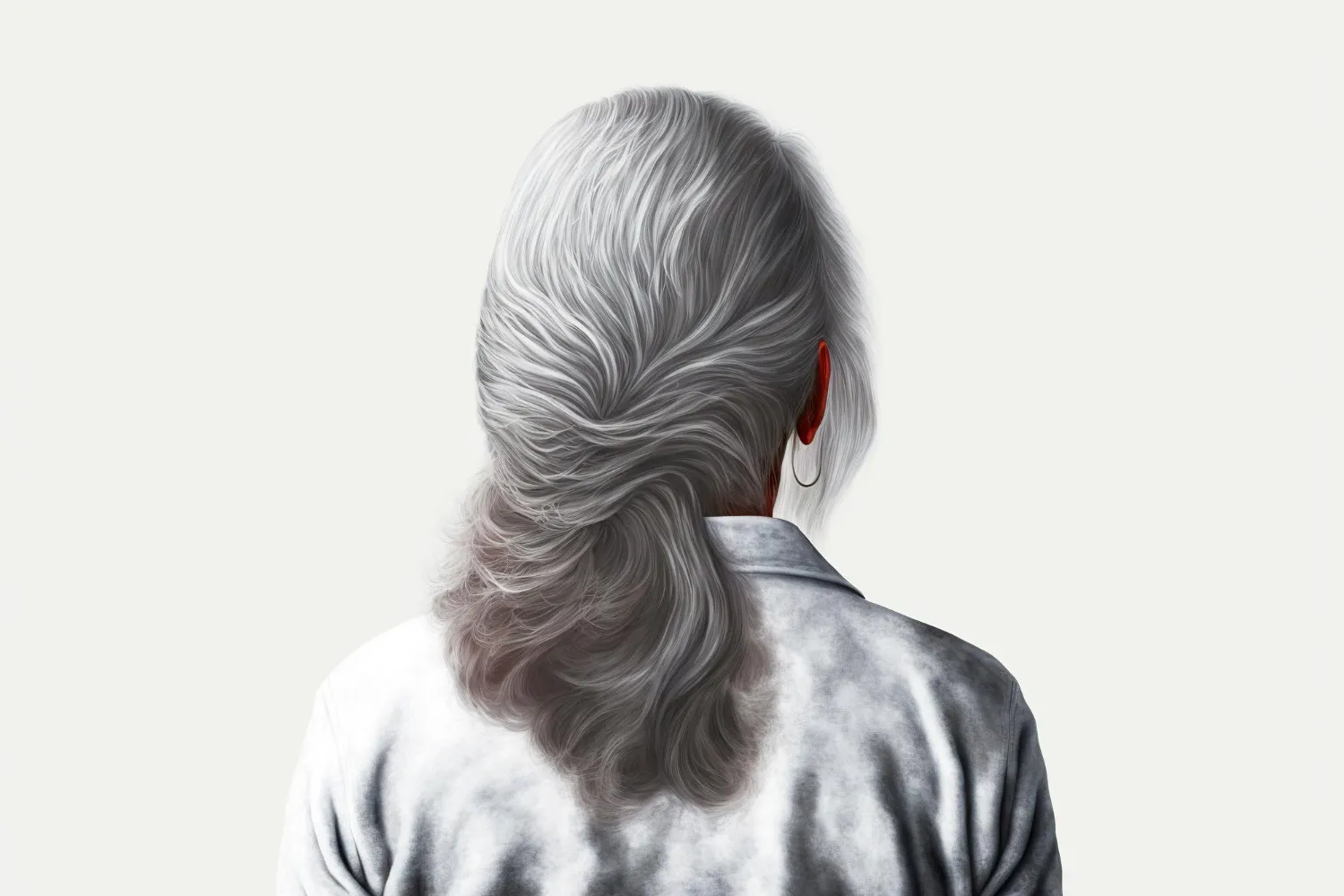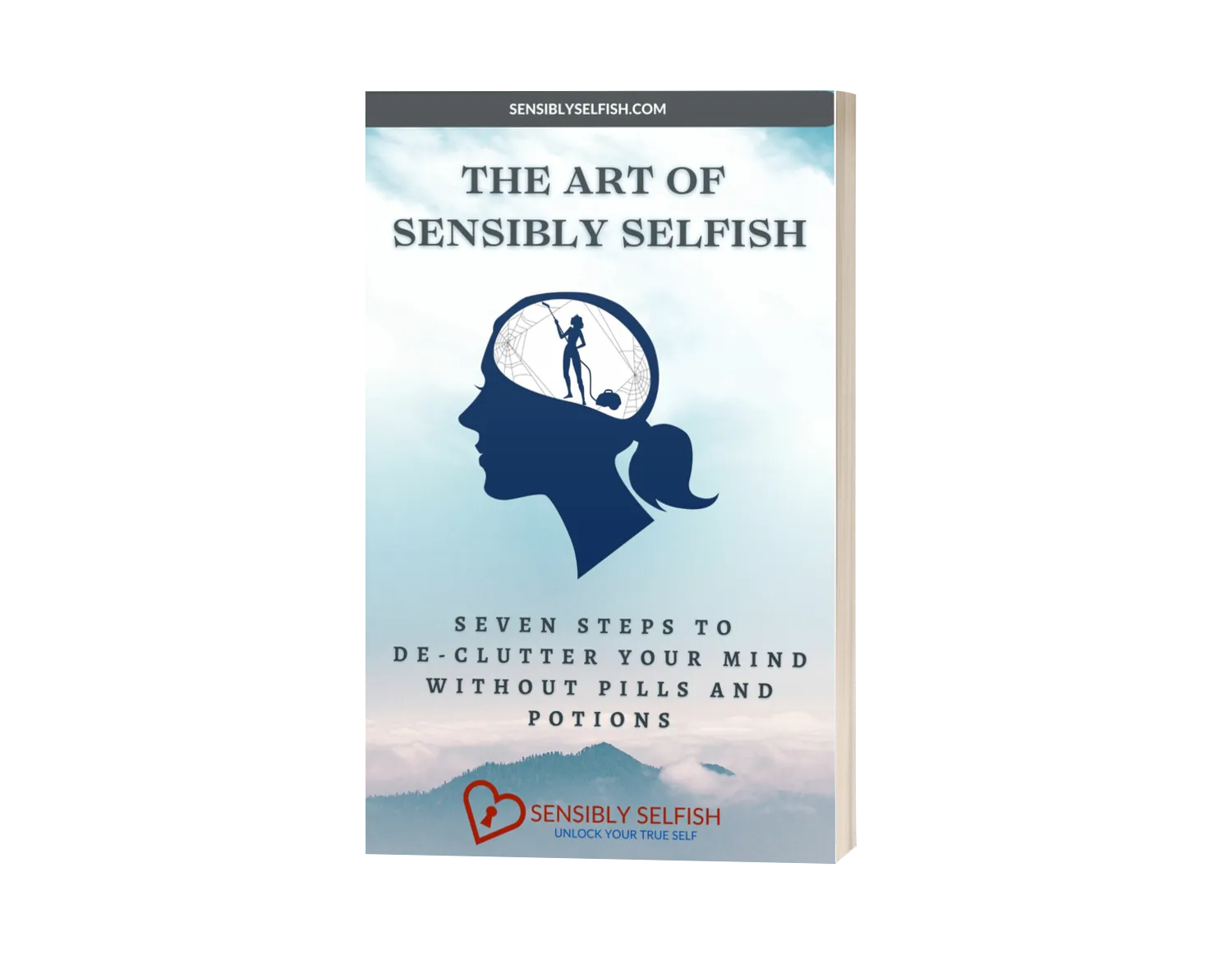Confronting the Habits of Stress and Anxiety
Breaking Free from Modern Traps
[Toc]
This article focuses on stress and anxiety. However, the author can feel her heart pounding as she writes this piece because what she is about to discuss can be controversial and elicit feelings of anger in some individuals.
The following words represent the author's personal thoughts and opinions. They are not intended to be acted upon or used by the reader or any other person unless they have fully contemplated the entire article. The author has written this piece in an open discussion format to foster understanding and promote the possibility of creating change.

Introduction
It is estimated that one in six individuals worldwide has experienced anxiety and depression. In the United Kingdom, women are twice as likely as men to experience anxiety. However, it's important to recognize that statistics can be interpreted in various ways.
What if every person in the world has encountered some level of anxiety or depression at some point in their life?
The author of this article is not a trained medical professional. However, as a personal development coach with twenty years of experience, they have observed an increasing number of women seeking help for various levels and types of anxiety or depression. Some individuals show significant improvement through their work together, while others are referred to clinical psychologists who often prescribe medication.
The growing reliance on medication is a concerning trend. The author is about to share their common-sense observations on life as they perceive it. It's important to note that the author does not claim that all cases of anxiety and depression can be attributed to the habits discussed below. Some people have mental illnesses that require medical supervision. This distinction is crucial, and it is not meant to be understated, but it falls outside the scope of this particular post.
Anxiety and Depression
Furthermore, it's necessary to define anxiety and depression for clarity. Anxiety is characterized by a fear associated with the anticipation of a potential threat or negative outcome in the future. It manifests as feelings of worry, nervousness, or unease. On the other hand, depression involves intense and prolonged periods of sadness, moodiness, or feeling low, often without an apparent reason. It is a condition that affects both physical and mental health, characterized by profound feelings of despondency, dejection, inadequacy, guilt, lack of energy, and disruptions in appetite and sleep.
With these points established, the author aims to address the underlying causes contributing to the sharp rise in anxiety and depression cases.

Africa and The West
During the author's time in East Africa, (which spanned nearly three years), she had the opportunity to experience a simpler lifestyle. This experience opened her eyes to the inherent issues prevalent in Western society that make it challenging for individuals to thrive. The culture in Africa is totally different from the Westen culture.
Despite living in poverty, without basic amenities such as running water and electricity, the people led contented lives. They consumed simple foods, engaged in regular exercise, fostered a strong sense of community, and greeted everyone they encountered with genuine smiles and personal greetings. Witnessing their happiness and enjoyment of life despite their hardships left a profound impression on the author.
Returning to Europe, the author couldn't help but notice the growing statistics indicating a rise in individuals living alone. People passed each other on the streets without making eye contact or engaging in any form of interaction. Instead, they queued quietly to purchase processed foods. These observations further highlighted the increasing challenges faced by modern society.
The Lack of Holistic Habits
Humans as holistic beings, encompass both mental and physical aspects, it is crucial to consider the entire picture when understanding a person's life. When consulting with clients, the author takes the time to inquire about their health, environment, relationships, mindset, and various other nuances that contribute to their overall well-being.
This process requires patience, time, and a mutual willingness to explore possibilities and make gradual changes to habits over an extended period, fostering personal evolution. Habits are defined as "settled or regular tendencies or practices, especially ones that are difficult to give up," and are inherent in all of us. Often, we struggle to recognize them without assistance, being unable to see the forest for the trees.
The modern world has ingrained habits that, in the author's opinion, contribute to anxiety and depression. These habits can be categorized into three main aspects: the system of modern medicine, modern lifestyle, and modern mindset.

The Habit of Modern Medicine
Unfortunately, the modern medical profession is suffering and overwhelmed. In the UK the waiting list to see a local general practitioner is measured in weeks not days. The quickest way is to have a consultation online for just a few minutes. This leaves little time to address the root causes of health issues.
In Western society, there is an inclination for quick fixes, leading to a preference for popping a pill and continuing with our usual routines rather than making the effort to bring about change. In fact, we often demand such quick fixes.
The West has developed a mindset that expects to visit a doctor and receive a prescription to cure all ailments. We demand a quick fix for everything and often refuse to leave the doctor's office without that "magic pill." The doctors themselves, constrained by time limitations and the fear of malpractice lawsuits, often adhere to an unwritten policy of "better to give something than nothing."
Time pressures prevent the medical profession from fully investigating the patient's lifestyle choices, which are crucial for a comprehensive diagnosis. Consequently, the only ones who truly benefit are the pharmaceutical industry which makes millions from the broken system.
It is important to acknowledge that modern medicine comes with numerous side effects. In some cases, these side effects can be more severe than the original illness being treated, further exacerbating the imbalance in the body and mind. As time goes on, clients may find themselves wondering why their lives are not improving. In fact, they may even increase their dosage of medications as the years pass, perpetuating a vicious downward spiral.
The Habit Of Modern Lifestyle
In combating anxiety and depression, lifestyle habits play a significant role, according to the author's perspective. “It appears that we have lost control over our minds and bodies, failing to grasp the consequences of our actions and how they can cause harm”. Here are a few examples:
- Lack of a natural and balanced diet
- Insufficient daily exercise
- Sleep deprivation
- Succumbing to peer and societal pressures
- Excessive clutter and consumerism, neglecting a simple life
- Environmental pollution, both indoors and outdoors
- Self-medication through alcohol and drugs, whether over-the-counter or illegal
- Disconnect from nature and insufficient exposure to sunlight, forgetting our inherent connection with Mother Nature
- Lack of passion or purpose in life
- Living in isolation, without meaningful community involvement
- Lack of effort, laziness, and an instant gratification mindset
- Exposure to negative news through the media
- Hormonal and chemical imbalances, such as postpartum or menopause
- Insufficient intake of necessary vitamins and minerals due to dietary constraints
- Fears stemming from imagined experiences appearing real, like the fear of death due to limited exposure to death throughout life (which remains a socially taboo subject)
- Failure to live in the present moment, being consumed by the past or worrying about the future
- Neglecting time for controlling the mind and practicing mindfulness
- Excessive stress or an inability to effectively manage stress
- Feeling victimized and powerless
Each of these habits needs to be addressed and broken to allow individuals to return to basics and embrace simplicity.

The Habit Of Modern Mindset
The mind is an extraordinary tool, yet because we cannot physically observe it outside of its casing, we often disregard its significance. However, our minds are responsible for shaping our reality. The meanings we assign to life originate from within, not the other way around. Thoughts lead to feelings, which then lead to actions, always following this pattern.
To change our world, we must first change our thoughts. We have the power to create our reality. Every individual is capable of success. However, in today's society, many believe that success is unattainable, leading to a false understanding.
All that is required is an intention, either existing or potential, and the faith to work towards it. The modern world seems to have lost the ability to trust in one's ability to envision and manifest the life they desire, regardless of the obstacles they may face. This mindset is not about controlling life, as that is impossible and only leads to more anguish. Attempting to control life, whether our own or others', hinders our ability to truly live.
There exists a profound lack of self-understanding, leading to a lack of self-trust and subsequent insecurity. We have developed a habit of not being authentic, and suppressing emotions and feelings due to societal stigmas. This lack of authenticity ultimately results in both mental and physical illness.
Another habit we possess is seeking quick fixes for everything, rather than being willing to put in the necessary effort. For example, some individuals may prefer to remain ill to maintain a false sense of self-worth. Additionally, many people fail to grasp the concept of motivation.
It can be likened to pushing a heavy object up a hill—initially, you must exert substantial force to overcome the weight and get it moving even a few inches. Sustained pressure is then required to keep it moving uphill. Once at the top, life becomes easier. Without consistent daily effort and motivation in the right direction, nothing changes. All it takes are small, incremental actions, rather than a desire for instant results.
It is essential to recognize that being human means we will all have life experiences, some of which may become burdens. Anxiety and depression are aspects of our lives that we all experience to some degree. However, it is how we accept and deal with these thoughts when they arise that will impact the outcome. Coping with these thoughts becomes easier when we are at an optimal level. Breaking these habits is crucial.

Seven Simple Success Habits
Here are seven simple and sustainable habits for success. Ask yourself which one resonates with you, and start there. It is important not to change everything at once, as doing so can be overwhelming and make it difficult to understand the cause-and-effect relationships between our actions and their triggers, if any.
1. If something is not working and making you miserable, it's time to stop. No excuses. Life has its ups and downs, just like a heartbeat on a monitor. Expecting every day to be great is unrealistic. Embrace the simple daily actions, step by step, and breath by breath. It's not complicated if you know how, but don't give up or expect instant change.
2. Seriously consider the following:
- Eat well: Focus on fresh fruits, vegetables, grass-fed red meat, and natural fish. Avoid refined carbohydrates, wheat, sugar, and all processed foods. Remember, good food equals a good mood.
- Avoid toxic household and personal care products.
- Consult a holistic doctor for a comprehensive medical check-up to ensure your body is functioning optimally. Specifically, ask for tests on gut health and check for possible body inflammation. Use modern medicine sparingly, reserving it for emergencies and serious needs.
3. Live within your means: Declutter, downsize, and stop mindless consumption.
4. Prioritize quality sleep and engage in at least 30 minutes of exercise daily, including connecting with nature.
5. Break your habits by doing something unusual. It doesn't have to be complicated—try a new hobby, eat meat if you've been a vegetarian, dance to a genre of music you don't usually listen to, or go for a long walk in an unfamiliar location. The possibilities are endless.
6. Mindset matters:
- Release mental baggage and avoid negativity.
- Cultivate an attitude of gratitude for everything in life.
- Create space for mental relaxation with a 15-minute daily switch-off period.
- Keep a journal to reflect and process thoughts.
- Visualize the life you want to lead and trust in the process.
- Live your life from the inside out, understanding that self-trust and insecurity can be unlearned with patience and time.
- Embrace your issues and problems rather than avoid them. Remember, it's always your choice.
7. Lastly, don't hesitate to seek help and find motivation. No one is an island. Don't let modern habits that contribute to anxiety and depression hold you back from fully experiencing life. GET HELP.
[contact]
If you are not ready to talk with a person, and you have not already done so, download the FREE gift and use it as your first step to change.









